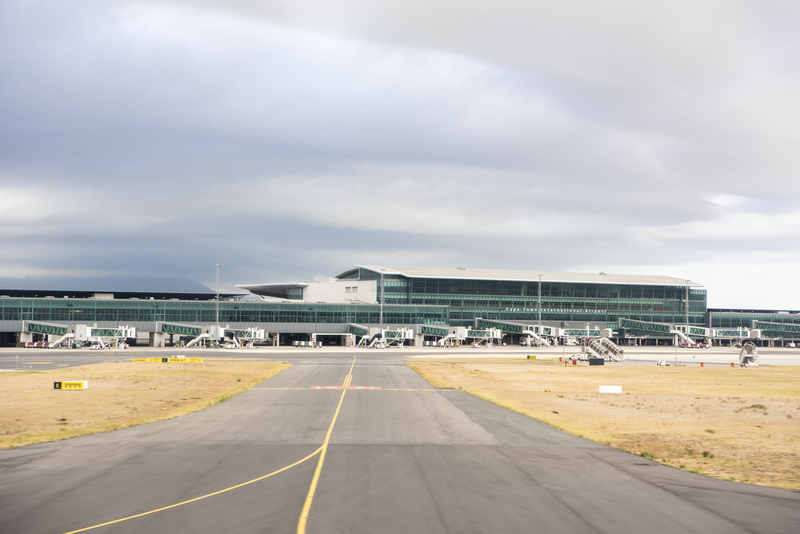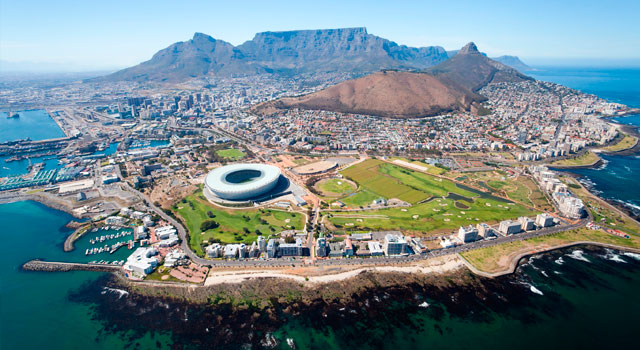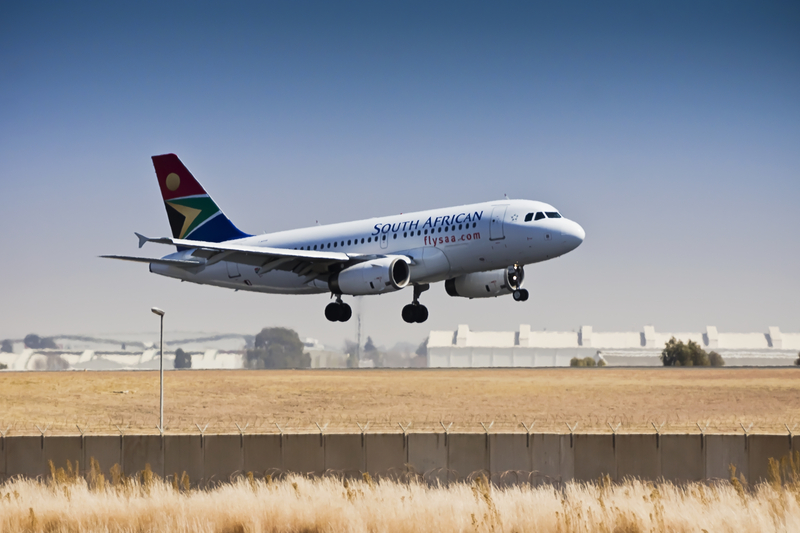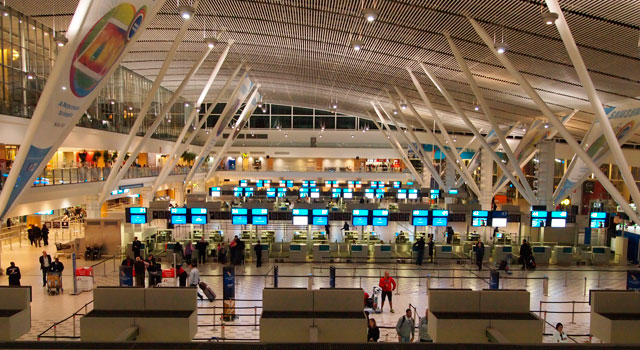Terminals +info
Cape Town Airport has domestic and international terminals linked by a common Central Terminal were all check-in takes place, so it can be considered as a single terminal.
International Terminal: It is located at the north (left side of the terminal building). It is required to firstly check-in in the Central Terminal.
See more information
Domestic Terminal: It is located at the south (right side of the terminal building). It is required to check-in first in the Central Terminal.
See more information
Facilities +info
CPT Airport offers some of the facilities attached below:
- Wi-Fi
- Banks
- Shops
- Restaurants and cafés
- Chapel
- Prayer rooms
- Conference rooms
- Medical services
- Restrooms
Transport +info
Cape Town International Airport has the following transportation options:
Bus: MyCiti bus rapid transit offers direct connections from CPT Airport to Cape Town city centre (Civic Centre Bus Station).
Taxi: Get to downtown Cape Town within 20 minutes by taxi.
Train: Although Cape Town Airport isn’t connected to the railway network, there are some ways to get straight to the main railway station of Cape Town.
Car Hire: To hire a car in Cape Town Airport is one of the best options if you visit Cape Town area for tourism. Book your car through our search engine.
Contact
Address: Private Bag X9002, Cape Town International Airport, 7525, SOUTH AFRICA
Phone: +27 21 937 1200
Email: customercare@airports.co.za
Official Website:
https://www.airports.co.za/airports/cape-town-international-airport
About Cape Town
Cape Town, the second-largest city in South Africa, is celebrated for its breathtaking natural beauty, featuring the iconic Table Mountain and its picturesque location along the shores of Table Bay. As of 2025, the city’s metropolitan area has a population of approximately 5,064,000, reflecting steady annual growth. It serves not only as a legislative capital, hosting the South African Parliament, but also as a major international tourist destination due to its mild climate and diverse attractions.
Visitors can explore iconic landmarks such as Table Mountain National Park, Camps Bay, Chapman’s Peak Drive, and pristine beaches along both the Atlantic and Indian Oceans. Other must-visit spots include the Victoria & Alfred Waterfront, Sea Point, City Bowl, and Hout Bay. The city’s cultural tapestry is woven from a rich history dating back to 1652 and a diverse linguistic heritage, with Afrikaans, Xhosa, and English being prominent languages.
Cape Town’s urban landscape reflects its complex past, with apartheid-era spatial planning creating segregated townships on the outskirts. Despite challenges like unemployment and inefficient urban sprawl, the city is considered one of South Africa’s most equal. However, it faces environmental vulnerabilities due to climate change, including extreme weather events such as flooding and droughts. The city’s economic vitality is driven by sectors like tourism, finance, and manufacturing. With its vibrant cultural scene and stunning natural beauty, Cape Town remains a global destination for travelers and a hub for governance and economic activity in South Africa. Its unique blend of history, culture, and natural splendor makes it a standout city on the African continent.




